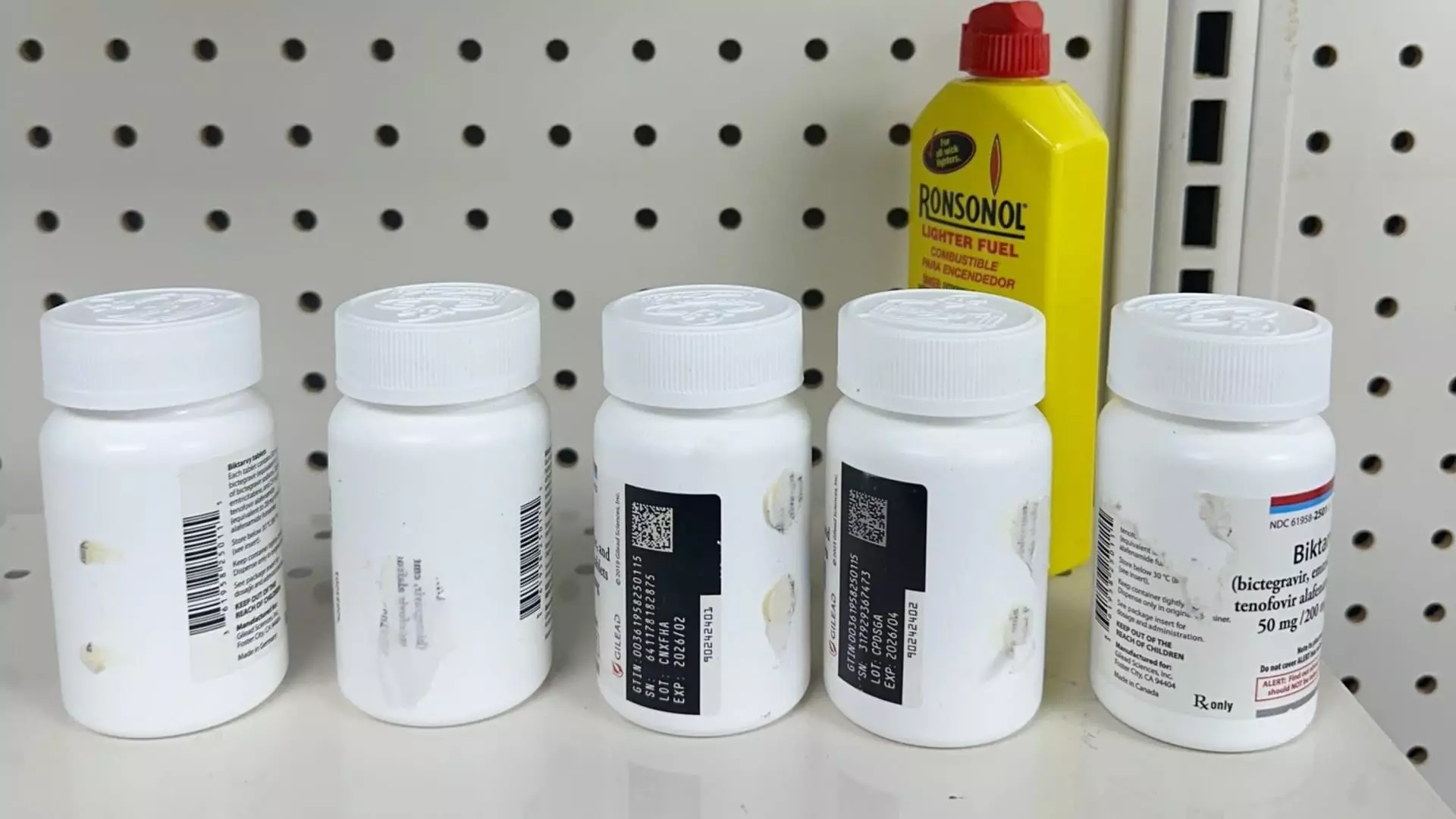The recent revelation by Gilead Sciences of a dangerous drug-counterfeiting operation has sent shockwaves through the pharmaceutical industry. The scheme, allegedly orchestrated by Peter Khaim, a notorious medical fraudster, involved tampering with HIV medications produced by Gilead and then improperly reselling them to unsuspecting patients. This discovery has raised serious concerns about the safety and integrity of the pharmaceutical supply chain.
Peter Khaim, identified as the mastermind behind the counterfeit drug operation, has a history of medical fraud and has been involved in similar illegal activities in the past. Court documents unsealed this month revealed that Khaim operated out of two New York City pharmacies – 71st RX and Best Scripts, both located in Queens. These pharmacies, along with other individuals connected to the scheme, are accused of manufacturing and trafficking counterfeit Gilead medications, putting the health and safety of patients at risk.
The Allegations Against Khaim and the Pharmacies
Gilead Sciences filed a lawsuit against Khaim, the two pharmacies, and others involved in the counterfeiting scheme. The complaint stated that Khaim controlled the pharmacies and that counterfeiters used authentic prescription bottles but tampered with the medication and associated documentation. The counterfeit medications were then sold with fake patient information documents, caps, and pedigrees. Most of the seized medications were Biktarvy and Descovy, which are vital for patients living with HIV.
Gilead attorneys and law enforcement officials conducted seizures at the pharmacies and Khaim’s home, uncovering more than $750,000 worth of suspected counterfeit medication. This is not the first time Gilead has taken legal action against Khaim – in 2021, a civil complaint resulted in an injunction prohibiting him from selling Gilead medications. However, despite the injunction, Khaim continued to operate the counterfeiting operation from the two Queens pharmacies.
Gilead’s Commitment to Patient Safety
In a statement to CNBC, Gilead emphasized its commitment to putting patient safety first and protecting individuals from counterfeit and illicit versions of its medicines. The company also mentioned its collaboration with regulatory and law enforcement agencies to dismantle counterfeiting networks and deter fraudsters. This recent lawsuit is part of Gilead’s ongoing efforts to ensure the integrity of the pharmaceutical supply chain and safeguard patients from potentially harmful counterfeit drugs.
A previous CNBC investigation shed light on the shadowy world of counterfeit drugs and how Gilead has been working tirelessly to combat this illegal activity. The investigation revealed that counterfeiters often obtain medications from patients who sell them for cash, remove the labels with lighter fluid, and then reseal the bottles for resale. In the case of Peter Khaim, lighter fluid was found at the pharmacies during the seizures, highlighting the extent of the counterfeiting operation.
The uncovering of the drug-counterfeiting operation by Gilead Sciences serves as a stark reminder of the challenges faced by pharmaceutical companies in ensuring the safety and authenticity of their products. The case involving Peter Khaim and the two New York City pharmacies underscores the need for heightened vigilance and regulatory oversight to prevent counterfeit drugs from reaching unsuspecting patients. Gilead’s swift legal action against the perpetrators sends a strong message that counterfeiting will not be tolerated in the pharmaceutical industry.

